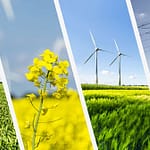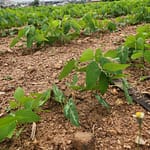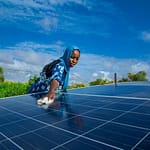The finance concept of debt-for-nature swap has become increasingly popular in the past year as countries are looking for ways to simultaneously reduce their debts and preserve their environment. This concept was first implemented in 1987 as a swap between Bolivia, Costa Rica, Ecuador, and the NGOs in the United States. The swap was a 650,00 USD purchase of Bolivia’s debt on the secondary market by Conservation International in exchange for the Bolivian government’s agreement to raise legal protection on the Beni biosphere reserve. Despite the benefits and the success of debt-for-nature swaps, their implementation has been minimal so far.
Debt-for-nature swaps are innovative ways governments and nations can free up financing to protect the environment without sacrificing other priorities. Debt-for-nature swaps are considered a type of climate financing as they help improve resilience and provide the funding needed to adapt to and mitigate the impacts of climate change, solely focusing on conserving the environment. The instrument involves purchasing foreign debt, converting that debt into local currency, and using the proceeds to fund conservation activities like protecting endangered environments.
Read also: Fuel Consumption Drops as Kenyans Keep their Cars at Home
The debt-for-nature swap transactions are usually carried out on the secondary market, where the funder purchases the debt titles of the country. There are several economic benefits associated with this mechanism. For starters, the debtor countries reduce their external debts and promote the responsible use of their resources without compromising their national sovereignty. The nation also gets to focus on other important issues without going into financial stress.
In the past years, Nigeria has reported several environmental challenges ranging from deforestation to desertification. The case of deforestation in the country has been linked to colonial exploitation of the country’s resources. Between 1900 and 1960, the amount of rainforest was reduced to two large blocks with scattered fragments, and by 1991, there were just a few considerable patches left for reserve protection. By 2000–2005, Nigeria was recorded to have the highest deforestation rates in the world, having lost about 55.7 percent of its primary forest.
In 2018, the Nigerian Conservation Foundation reported that the country had lost over 96 percent of its natural cover and that its deforestation rate was 11.1 percent per year. The numerous statistics highlighted show that there is a market for debt-for-nature swaps in the country.
Nigeria is in a serious debt crisis, and its biodiversity is also in need of attention. As of June 2023, Nigeria’s total external debt amounted to 108.30 billion USD. Nigeria exploring the option of a debt-for-nature swap will be an innovative way to combat illegal deforestation, protect biodiversity, and alleviate its external debt.
The economic implication of Nigeria’s debt in relation to climate finance is very evident. Because of the current level of debt, it’s almost impossible for the country to invest in innovative ways to mitigate and adapt to climate change. The last flooding crisis was an example. The poor response to the incident shows that the country needs to scale up climate financing.
A Case Study of the Seychelles
The Seychelles conservation and climate adaptation trust was established because of the country’s ambitious plan to finance the sustainable development of its blue economy. Seychelles had an external debt of 3.351 billion USD as of June 2018. This was also the same period when the country successfully negotiated its first debt-for-nature swap with a focus on conserving its ocean life. The country was able to swap 21.6 million USD and simultaneously commit to protecting 30 percent of its exclusive economic zone. Since then, the Seychelles government has been able to raise about 15 million USD from the blue bonds they issued.
The development of the Seychelles Blue Economy strategic policy framework and roadmap played an integral role in guiding the sustainable use of ocean resources and the role of the economy. The benefits of the world’s first blue economy debt-for-nature swap include financing adaptation to climate change through the management of coasts, coral reefs, and mangroves and providing debt relief to the country.
Risks to a successful negotiation of a debt-for-nature swap in Nigeria
Now that we have established that there is a market for debt-for-nature swaps in Nigeria and that there is also a successful implementation of the innovative financing method in Africa, we will then look at the obstacles and risks posed to a debt-for-nature swap in a Nigerian context.
Navigating the complexities of debt-for-nature swaps in Nigeria requires careful consideration and strategic planning. One of the major challenges will be the legal complexity of the deal. The swap requires a framework like what the Seychelles did but tailored to the county’s needs. Another challenge the country might face is divided interest among the stakeholders involved. The negotiation must benefit the interests of all parties involved. A careful debt-for-nature swap negotiation involves striking a balance between addressing Nigeria’s economic needs and achieving tangible conservation outcomes.
Additionally, Nigerian environmental laws are slack and are often not carried out. For the implementation of the swap to be successful, the Nigerian government will have to revise the current environmental laws, tighten any loopholes, and enforce the laws to the fullest extent.
The success of the swaps depends on a lot of factors, but one major one is the monitoring and evaluation of the mechanisms to track the progress the impacts have made so far. The Nigerian government should also seek to work with community leaders in areas they are trying to preserve. They should also increase collaboration with international organizations to enhance the success of the debt swap.
The debt-for-nature swap is yet to be implemented in Nigeria; this is a call for action for the government to consider this as an avenue to save and preserve the biodiversity of the country.
Subscribe to LIDA Network












